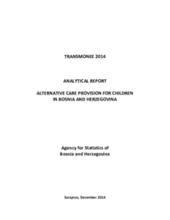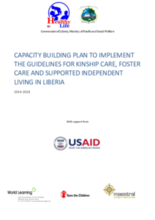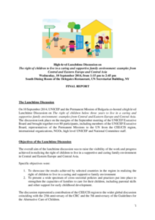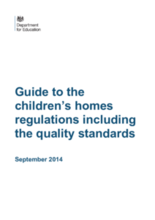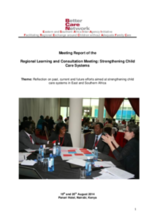Displaying 1841 - 1850 of 2223
This document from the Agency for Statistics of Bosnia and Herzegovina provides an overview and assessment of the alternative care system in the country.
This capacity building plan supports the implementation of the Liberian Guidelines for Kinship Care, Foster Care and Supported Independent Living.
This report is prepared within the MONEE project of UNICEF Regional Office for CEE/CIS. It provides an overview of alternative care in Armenia.
On 10 September 2014, UNICEF and the Permanent Mission of Bulgaria co-hosted a high level Lunchtime Discussion on The right of children below three years to live in a caring and supportive family environment: examples from Central and Eastern Europe and Central Asia.
This guide accompanies the Children’s Homes Regulations 2015 from the United Kingdon and provides further explanation and information for everyone delivering residential care.
This Masters thesis paper, by Michael Maher King of the University of Oxford, reviews the situations of children in institutional alternative care in Israel and Japan.
This video features a segment of a talk on the effects of care environments on children, hosted by the Christian Alliance for Orphans. The key speakers featured include Dr. Kathryn Whetten & Dr. Charles Nelson, who discuss the Positive Outcomes for Orphans study (POFO) and the Bucharest Early Intervention Project (BEIP), respectively.
This report provides an overview of a two-day regional consultancy on strengthening child care systems in Eastern and Southern Africa.
The One Step Forward book is a visual guide to resilience, written and illustrated by young people in foster care.


